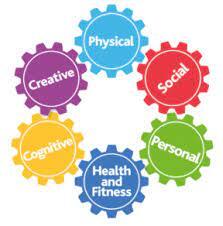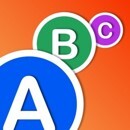PE
At Gray’s Farm we adopt a child-centred approach to physical education which gives control of learning to our children. This approach gives responsibility, ownership and control of their learning which empowers them to take control of their own learning which boosts their resilience and self-esteem.
From EYFS through to KS2 we focus upon 6 key learning areas across the academic year (1 every half term) with physical activity being used as a vehicle to support our children to develop these key learning areas. The key learning areas develop incrementally across the years to ensure all children develop all the relevant skills required to flourish. Fundamental movement skills (based around agility, balance and co-ordination) are used as the physical activities to support the key areas of learning. These are the “building blocks” for more complex and specialised skills that our children will need throughout their lives to competently participate in different games, sports and recreational activities.

Our indoor and outdoor physical education lessons are designed to complement each other focusing on the same key learning area just in an alternative way. This enables children to build upon their previous learning at their own pace.
Our vision is to equip all our children with the skills they need to become life-long learning specialist (not just sport specialists) who have both an understanding and have a positive relationship with physical activity.
Please see our Physical Education Overview here
Physical Activities at Home
Here are some suggested activities you could do or support your child at home to continue their physical activity.
|
|
|
|
|
|
|
|
|
|
|
|
Swimming
Since 1994, swimming and water safety has been a statutory element of the national curriculum for physical education in England. This means that every 11-year old child should leave primary school with the skills to keep themselves safe while enjoying swimming with friends and family. All primary schools must provide swimming and water safety lessons in either Key Stage 1 or 2.
Each pupil is required to be able to do the following:
Swim competently, confidently and proficiently over a distance of at least 25 metres.
Use a range of strokes effectively (e.g. front crawl, backstroke and breaststroke).
Perform safe self-rescue in different water-based situations.
Please see our Swimming Curriculum here
Swimming Outcomes
For Swimming Outcomes % - Cohort Finishing 2020-2021 CLICK HERE
For Swimming Outcomes % - Cohort Finishing 2021-2022 CLICK HERE
For Swimming Outcomes % - Cohort Finishing 2022-2023 CLICK HERE
For Swimming Outcomes % - Cohort Finishing 2024-2025 CLICK HERE
SEND - Ambition and Access in PE
|
Ambition – What are we aiming for children with SENs to achieve in this subject? |
Access – What amendments are made to the subject in order to help children with SENs to achieve? |
|
Children are able to take control of their own learning where they have responsibility and ownership to challenge themselves. To support children to build resilience and self esteem. To help children to develop skills they need to become life-long learning specialists who have both an understanding and have a positive relationship with physical activity. |
|








